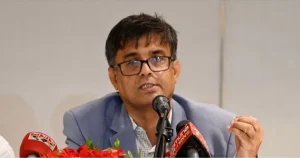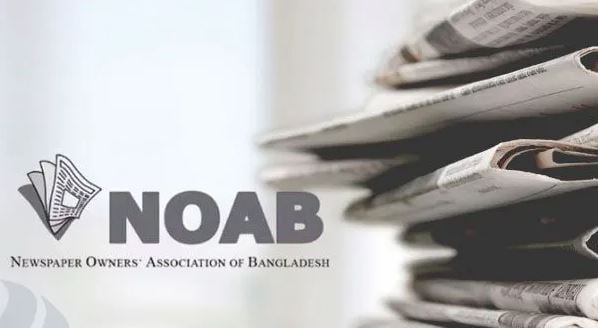The Interim Government has firmly rejected allegations made by the Newspaper Owners’ Association of Bangladesh (NOAB) regarding press freedom, calling them “misinformed” and “unfounded.”
In a detailed statement issued Friday by the Chief Adviser’s Press Wing, the government defended its track record, asserting that it has exercised “exceptional restraint” and maintained a “hands-off” approach toward media operations during its tenure.
“We strongly and unequivocally reject the insinuation that the Interim Government has been responsible for undermining freedom of expression or media independence over the past year,” the statement read.
The statement emphasised that since taking office, the Interim Government has not interfered in the editorial, operational, or business activities of any media organization. Even in the face of “misinformation and politically motivated broadcasts,” the government claims it has refrained from censorship, license suspensions, or any retaliatory actions.
“Some media outlets forcibly shut down under previous regimes have been allowed to return to operation, underscoring our commitment to a free press,” the statement added.
Rejecting NOAB’s claim of restricted access, the government asserted that journalists have continued to enjoy open communication with advisers and special assistants to the Chief Adviser. According to the press wing, no journalist has been denied interviews or press briefings due to their editorial stance.
“We believe in transparency, and our conduct reflects that,” the government said.
Responding to criticisms over changes in the journalist accreditation process, the government argued that reforms were necessary to eliminate corruption and misuse of access passes.

The statement noted that under the previous system, press credentials were sometimes held by individuals with no legitimate journalistic function—including lobbyists and politicians. The Interim Government claims it dismantled that system and replaced it with a temporary pass system that ensures access only for “bona fide journalists.”
The revised process, the government said, is aimed at restoring integrity rather than imposing restrictions.
The government distanced itself from recent layoffs within media outlets, attributing them to internal corporate decisions rather than political pressure. “Journalists who have been let go have done so not by government instruction but due to editorial and strategic business realignment decisions made by media owners,” the statement clarified.
Regarding the safety of journalists, the government reiterated its commitment to ensuring a secure environment and highlighted the recent proposal of a “Journalists’ Protection Law” by the Media Reform Commission. The law, currently under consideration, aims to safeguard journalists’ legal rights and reduce the chilling effect of self-censorship.
The government also turned the spotlight back on NOAB, urging the organization to hold its own members accountable for alleged labor rights violations and exploitative practices within media houses.
“NOAB must scrutinize the actions of its own members, particularly on issues such as wage exploitation, denial of rights, and unsafe working conditions,” the statement said.
Concluding its rebuttal, the government reiterated its commitment to press freedom, transparency, and the rule of law.
“Freedom of expression is not merely a slogan for us; it is a principle we live by. Blanket accusations based on flawed interpretations do not advance press freedom—they only distract from the real challenges facing Bangladesh’s media landscape.”
The statement invited all stakeholders, including NOAB, to engage constructively in shaping a media environment that balances independence with accountability.


